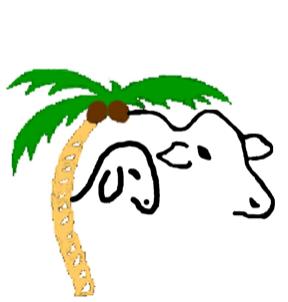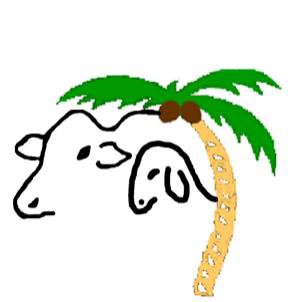

Research
- Research Activities
- Agricultural Experiment Station (AES)
- Caribbean Exploratory Research Center (CERC)
- Alliance for Responsive Investment in Children’s Health: Virgin Islands (A RICH VI)
- Caribbean Green Technology Center (CGTC)
- Center for Marine & Environmental Studies (CMES)
- Eastern Caribbean Center (ECC)
- Emerging Caribbean Scientists (ECS)
- Etelman Observatory
- Institutional Research
- Title III and Sponsored Programs
- Research & Public Service (RPS)
- Research & Technology Park (RTPark)
- Research Day
- VI-EPSCoR
- Water Resources Research Institute (WRRI)
Animal Science


The Animal Science Program conducts basic and applied research aimed at increasing production and improving efficiency and sustainability of livestock production in the tropics, with an emphasis on preservation and propagation of germplasm unique to the Virgin Islands.
Program Description
The major emphasis of the program has historically been in the area of Reproductive Physiology, but projects are also conducted in the areas of Nutrition, Behavior, Genetics, Meat Science and Environmental Physiology. Studies are primarily conducted on hair sheep and beef cattle.
Much of the work is done on a flock of hair sheep housed on the 40 acre Sheep Research Facility located at the southeast corner of the St. Croix campus of UVI. The research flock consists of approximately 100 adult hair sheep, and depending on the time of year, there may be as many as 90 lambs present. The breeds of sheep in the flock are St. Croix White and Dorper x St. Croix White hair sheep. Each breed is managed as a purebred flock with breeding lines within each breed. Replacement animals are selected based on their birth status (i.e., twins), weaning weight, breed characteristics and conformation. Due to the lack of a major change in length of daylight throughout the year on St. Croix the sheep are able to breed at all times of the year (lambing/breeding cycle ). The flocks are managed on 8 month cycles to produce 3 lamb crops every 2 years. Our sheep can achieve a 180% lamb crop at each lambing.
Research is also conducted on cattle located on an off-station location. Senepol, which is a breed of tropically adapted Bos taurus cattle that was developed on St. Croix in the early 1900's, is the major breed of beef cattle on the island. The Senepol was selected for it's ability to perform well under the environmental conditions found in the Caribbean and local ranchers have developed both a domestic and international market for these animals. The cows have good maternal traits, and both bulls and cows have a very calm temperament. In 2006 the Castle Nugent herd of Senepol cattle was donated to UVI-AES and is being managed by the Animal Science program. There are approximately 100 cows in the herd for breeding. The cows are currently managed to calve in the spring.
Field methods that have been used in the Animal Science Program include the use of ultrasound for pregnancy detection, laparoscopic monitoring of ovulation, transcervical artificial insemination , and semen collection and evaluation. The laboratory is capable of conducting hormone assays (ELISA), semen evaluation, tissue collection and processing, and gastrointestinal parasite evaluations.
Contact Information:
Dr. Robert Godfrey, Ph.D., Director
Whitney George, M.S., Research Specialist